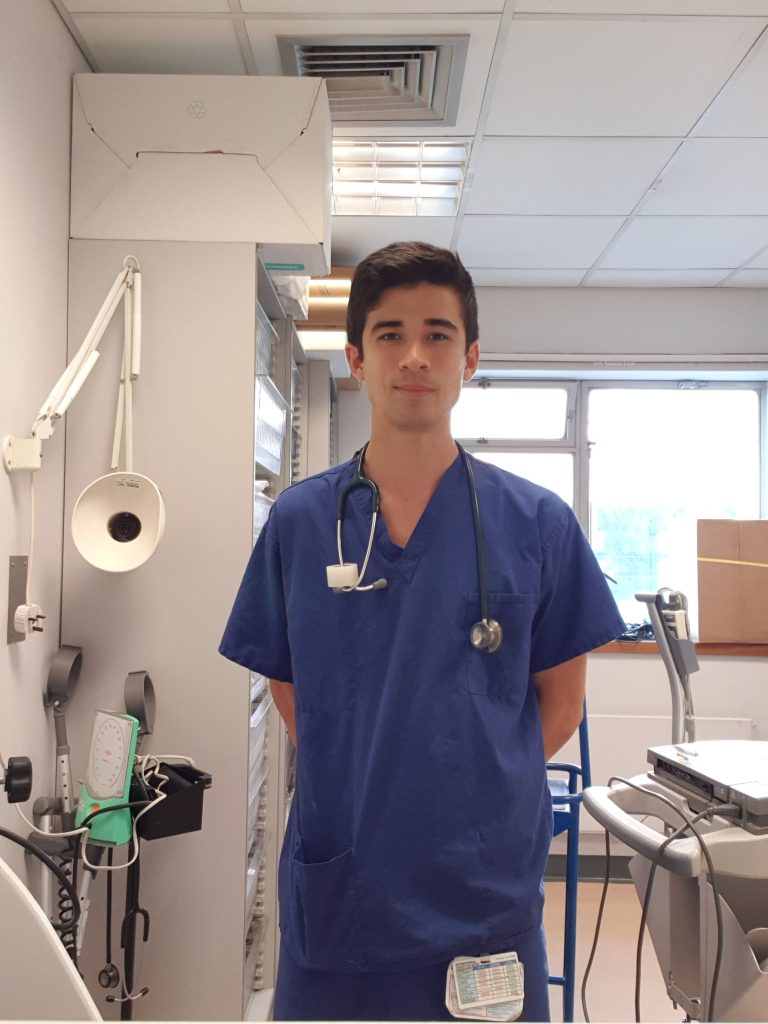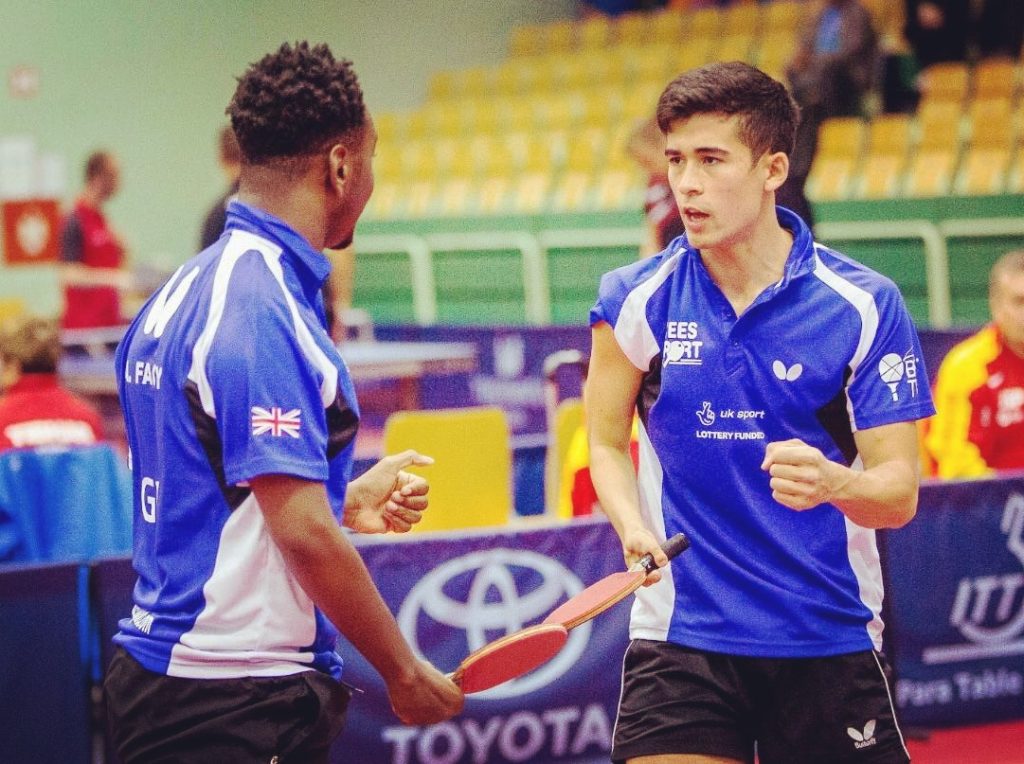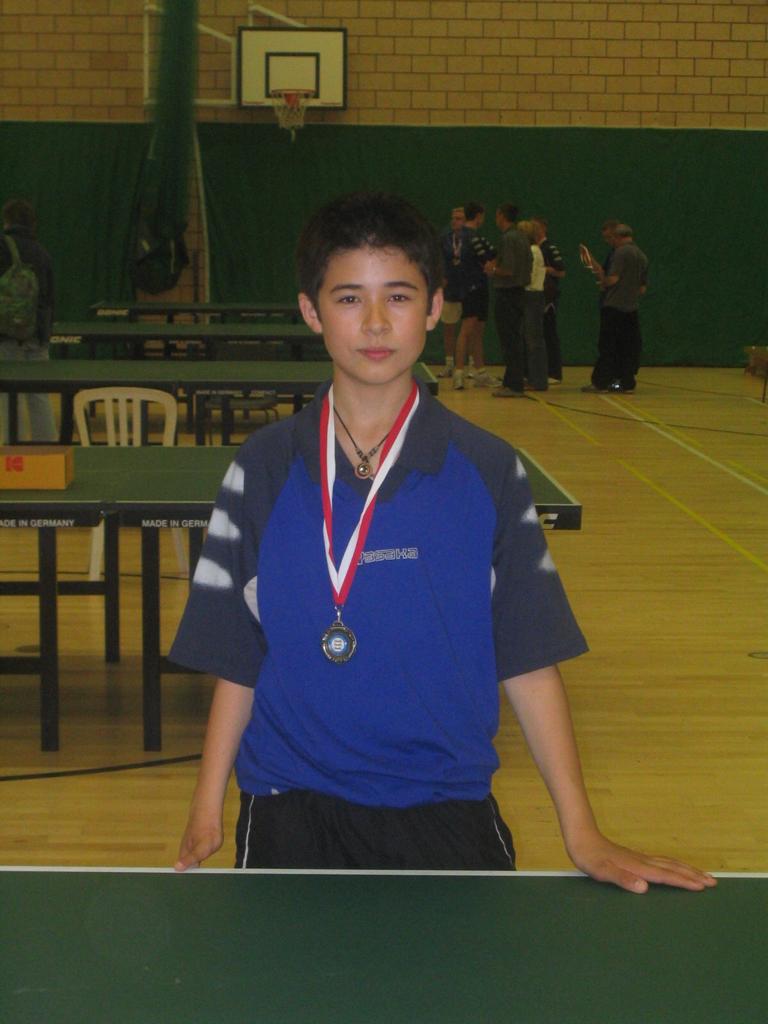
Shared from Within Reach Magazine Summer 2024. Flick through the whole magazine here!
WR Magazine caught up with Kim Daybell, the retired Paralympian turned doctor, who, despite facing obstacles along the way, defied expectations and followed his ambition straight to medical school. Kim talked to us about Poland Syndrome and the organisation PIP-UK, competing at the Paralympics and what it’s like being a doctor with a limb difference.
Hi Kim, tell us a bit about you…
My name is Kim Daybell, originally from Sheffield and currently living and working in London. I was born with Poland Syndrome- a condition that affects my right hand and chest wall muscles on my right side. I currently work in Intensive care and retired from international table tennis last year after a 16-year career playing for Team GB.
Describe yourself in 3 words?
Thorough, hardworking and empathetic
When did you start playing table tennis and how did that lead you to competing and then the Paralympics?
I began playing Table Tennis when I was 8 years old. I started, first on an old table in my garage, and quickly started going to sessions. By aged 10 I was one of the top ranked junior players in England. I played for England up until age 16 when I was approached by a member of the GB Paralympic Table Tennis team. He suggested I get classified and compete on the Paralympic circuit. Around this time, London won the bid to host the 2012 Olympic and Paralympic Games and my mind was made up. The Paralympic team took me in and trained me for my first Paralympic Games in London. I never looked back and played for the Paralympic team for the rest of my career.

When did you know you wanted to go into medicine?
Playing Para Sport! After meeting all the other disabled athletes, I saw what modern medicine had done for them. This also got me thinking about what it had done for me. I decided at that point becoming a doctor was the best way for me to give back to the medical field. I applied for medical school and started in 2011.
What are some of the challenges you’ve faced in your career so far?
Being a disabled doctor has not always been easy. When applying for medical school, there were senior doctors who questioned my physical ability to perform the skills needed. Luckily, there were some amazing tutors and teachers who supported me, whist the drive and determination that I had developed from playing elite level sport helped me to learn and thrive. Balancing sport and medicine has also been a tough challenge. Both are essentially fulltime jobs and it was difficult to achieve what I wanted to in both fields. But again, with good time management and amazing support I was able to find a way to do both.
There are some careers I think people with limb difference would shy away from, being more ‘hands-on’ – what have you learned so far about limb difference and doing things people perhaps don’t expect of you.
From doing it myself, and seeing the amazing feats of my Paralympic colleagues, I have learnt that you can achieve your goals if you set your mind to it – it may take some adaption or more practice but it is possible. Only you know what you are and are not capable of, and to find out you have to try!

You often have to work in different hospitals, how do you manage expectations when you start somewhere new, like asking for help if you need it, and do you acknowledging your limb difference rather than asserting that you can do everything?
Having a limb difference obviously brings up some challenges – especially in an environment as crazy as hospital! In a setting like that it is obviously important other members of my team are aware that I may need support in certain areas or with certain skills as the stakes are so high. When I started somewhere new, I always made sure I explained to people that I did have a disability and may need more help that others – but I also made sure they understood that there were lots of skills that I was very competent with as I had put so much practice into them. People are always receptive and helpful if you are open and honest yourself – by being upfront I think I enabled others to feel like they could offer advice, extra training or support to help me on my way.
You want to specialise in sports medicine? Does that stem from being a sportsperson yourself? Absolutely! I love the sporting environment and wish to work in it now that my days of competing are coming to an end. I also love the exercise/public health aspect to sports medicine. I firmly believe that exercise is the key to long term health and to help the growing burden that chronic disease and obesity is putting on the NHS.
You’re an ambassador for the charity PIP – can you tell us a bit PIP and why you are part of the charity?

PIP-UK is the UK charity for people with Poland Syndrome (this is the condition I have). The CEO of PIP (Sam Fillingham) is an amazing lady who has grown PIP into the organisation is today. She set it all up on a voluntary basis and now it has hundreds of members across the UK and abroad. As an ambassador I support them where I can and my main focus is helping them with medical research on Poland Syndrome so that we can show the need for the NHS to invest in diagnostic pathways and treatment.
You had surgery when you were young, can you tell us a bit about what procedure/s you had?
I had one operation when I was two years old. The operation was a double toe transfer. The surgeon took my second toe from each foot and stitched them onto my right hand to give me opposable digits. I was offered an operation as a teenager to reconstruct the muscles on my right chest wall but I decided against this as I felt I was managing well and didn’t want to be operated on again.
What advice would you give to new parents of Reach children who might be worried about their child’s future?
I won’t say not to worry because I think that is what parents will always do! But there is no reason why a child with a limb difference will have a smaller world than those without. My disability opened the door to some of the greatest experiences of my life and it is a big part of my life though it does not define me. With support and the right people around, they will do just fine! The most important thing is utilisation great organisations like Reach and PIP-UK, to get support and learn from all the amazing people within them.
Shared from Within Reach Magazine Summer 2024. Flick through the whole magazine here!

